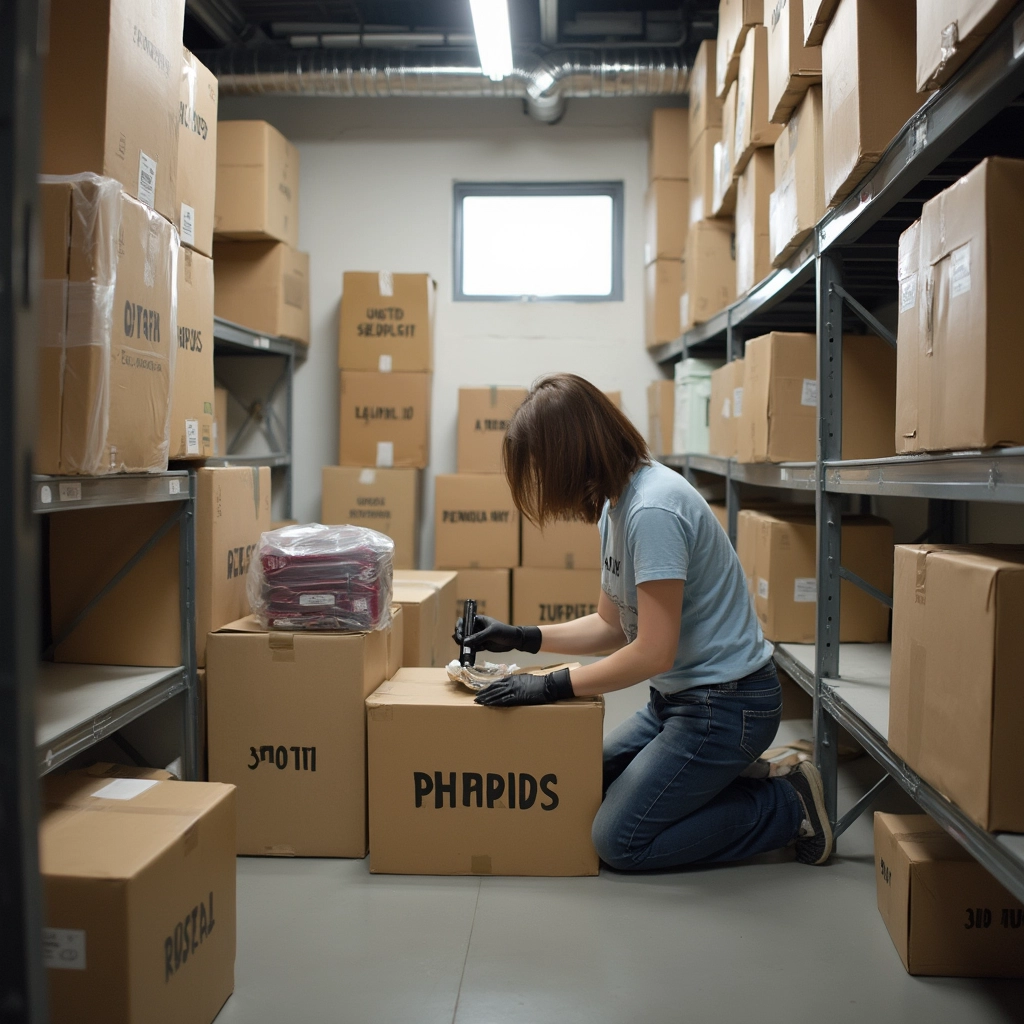What You Should Never Store in Your Rentanook Space: The Ultimate Guide
What You Should Never Store in Your Rentanook Space: The Ultimate Guide
When it comes to renting storage spaces through Rentanook, it's crucial to remember that while the platform connects you with individual hosts, certain rules and guidelines still apply to ensure everyone's safety and satisfaction. At Rentanook, we prioritize the well-being of our community, so it's essential to know what items are prohibited from being stored in any space rented through our platform.
In this comprehensive guide, we'll walk you through the items you should avoid storing in your Rentanook space. By following these recommendations, you'll protect your belongings, maintain a positive relationship with your host, and contribute to a safe and compliant environment for all users.
Introduction
At Rentanook, we connect you with local hosts who offer storage spaces that are convenient, affordable, and secure. Whether you're decluttering, moving, or simply need some extra space, Rentanook simplifies the process by allowing you to find and rent storage from hosts in your area.
However, to ensure a smooth and safe experience for everyone, it's essential to be aware of certain restrictions regarding what can and cannot be stored. While each host may have their own specific rules, this guide outlines general guidelines to help you avoid potential issues and maintain compliance with the platform.
Common Prohibited Items
While each Rentanook host may have unique terms and conditions, several categories of items are universally prohibited due to safety, legal, or ethical concerns. Here are some things you should never store in any Rentanook space:
Hazardous Materials
Storing hazardous items in a rented space is dangerous and poses serious risks, including fires, explosions, and environmental damage. Prohibited hazardous materials include:
Flammable or Combustible Items: Gasoline, propane tanks, kerosene, fireworks, and lighter fluid.
Chemicals and Toxic Substances: Pesticides, cleaning solvents, paints, and corrosive materials.
Compressed Gases: Aerosol cans, oxygen tanks, and other pressurized containers.
Medical Waste: Biological waste, used needles, or biohazard materials.
Remember: If it's dangerous or could harm others, it doesn't belong in a storage space.
Perishable Goods
Storing perishable items can lead to mold, unpleasant odors, and pest infestations, which could affect your unit and those around you. Avoid storing:
Food Items: Fresh produce, meat, dairy products, and other perishable foods.
Pet Food: Open containers of pet food that can attract pests.
Plants: Live plants that need care or could introduce insects.
Exception: Sealed, non-perishable food items may be acceptable, but always check with your host before storing them.
Illegal Items
Storing illegal items is strictly against Rentanook policies and could result in serious legal consequences. Prohibited items include:
Stolen Property: Any items that you do not legally own.
Illegal Drugs and Paraphernalia: Controlled substances and related equipment.
Unlicensed Weapons and Ammunition: Firearms without proper permits, explosives, or other illegal weapons.
Counterfeit Goods: Fake currency, illegal documents, or pirated media.
In short: If it's illegal to own, it's illegal to store.
Living Beings
Storage spaces are not suitable environments for living creatures. This includes:
People: Staying overnight or living in a storage unit is both unsafe and prohibited.
Pets or Animals: Storage units are not appropriate places for any animals.
Insects or Microorganisms: Storing hives, colonies, or cultures is not allowed.
Special Restrictions on Vehicle Storage
If you plan on storing a vehicle, certain rules must be followed. While vehicle storage can be a convenient option, it's important to communicate with your host to ensure their space is suitable for this purpose. General guidelines include:
Registration and Insurance: Vehicles must be legally registered and insured; proof may be required by your host.
Operational Condition: Non-operational vehicles or junk cars are typically not allowed unless specifically permitted by the host.
Fluids: Vehicles must not be leaking fluids, and some hosts may require you to drain fuel tanks.
Host Approval: Always check with your host to confirm their specific requirements for vehicle storage.
Best Practices for Storing Sensitive Items
Proper care when storing sensitive items can help ensure they remain in excellent condition. Whether you're storing electronics, antiques, or delicate belongings, following these best practices will help protect your valuables:
Clean and Dry Your Items
Before storing your belongings, make sure they are clean and dry to prevent mold, mildew, and damage over time. Pay particular attention to:
Clothing and Fabrics: Wash and dry thoroughly before storage.
Appliances: Defrost refrigerators and wipe down interiors to avoid moisture buildup.
Use Appropriate Packing Materials
Choosing the right packing materials can significantly reduce the risk of damage:
Sturdy Boxes: Opt for high-quality boxes that can withstand stacking.
Padding: Use bubble wrap, foam sheets, or packing peanuts for fragile items.
Plastic Containers: Ideal for moisture-sensitive items.
Labels: Clearly label boxes for easy identification.
Special Care for Electronics and Antiques
Electronics and antiques often require extra attention:
Climate Control: Choose a climate-controlled space to protect against temperature and humidity changes.
Original Packaging: Store electronics in their original boxes whenever possible.
Protective Covers: Use dust covers, blankets, or specialized packing materials to keep items safe.
Unconventional Uses: What's Allowed and What's Not
While storage spaces offer flexibility, certain uses are prohibited or restricted:
Business inventory
Storing business inventory is generally acceptable, but you must:
Communicate with Your Host: Ensure your host is aware of and approves the use of their space for business purposes.
Comply with Laws: Make sure your inventory is legal and complies with Rentanook policies.
Insurance: Consider additional insurance coverage for your business assets.
Living Spaces
Using a storage space as a living area is strictly prohibited due to:
Safety Concerns: Storage units lack essential amenities like ventilation, plumbing, and electricity.
Legal Restrictions: Local laws do not permit using storage units as living spaces.
Conclusion
At Rentanook, we are committed to fostering a safe and secure community by connecting users with local hosts offering storage spaces. By adhering to these guidelines and communicating openly with your host, you'll ensure a smooth and safe experience. Whether you're storing personal items, business inventory, or seasonal gear, following these rules will help protect your belongings and maintain a positive relationship with your host.


